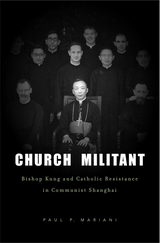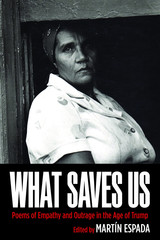
By 1952 the Chinese Communist Party had suppressed all organized resistance to its regime and stood unopposed, or so it has been believed. Internal party documents—declassified just long enough for historian Paul Mariani to send copies out of China—disclose that one group deemed an enemy of the state held out after the others had fallen. A party report from Shanghai marked “top-secret” reveals a determined, often courageous resistance by the local Catholic Church. Drawing on centuries of experience in struggling with the Chinese authorities, the Church was proving a stubborn match for the party.
Mariani tells the story of how Bishop (later Cardinal) Ignatius Kung Pinmei, the Jesuits, and the Catholic Youth resisted the regime’s punishing assault on the Shanghai Catholic community and refused to renounce the pope and the Church in Rome. Acting clandestinely, mirroring tactics used by the previously underground CCP, Shanghai’s Catholics persevered until 1955, when the party arrested Kung and 1,200 other leading Catholics. The imprisoned believers were later shocked to learn that the betrayal had come from within their own ranks.
Though the CCP could not eradicate the Catholic Church in China, it succeeded in dividing it. Mariani’s secret history traces the origins of a deep split in the Chinese Catholic community, where relations between the “Patriotic” and underground churches remain strained even today.

This is an anthology of poems in the Age of Trump—and much more than Trump. These are poems that either embody or express a sense of empathy or outrage, both prior to and following his election, since it is empathy the president lacks and outrage he provokes.
There is an extraordinary diversity of voices here. The ninety-three poets featured include Elizabeth Alexander, Julia Alvarez, Richard Blanco, Carolyn Forché, Aracelis Girmay, Donald Hall, Juan Felipe Herrera, Yusef Komunyakaa, Naomi Shihab Nye, Marge Piercy, Robert Pinsky, Danez Smith, Patricia Smith, Brian Turner, Ocean Vuong, Bruce Weigl, and Eleanor Wilner. They speak of persecuted and scapegoated immigrants. They bear witness to violence: police brutality against African Americans, mass shootings in a school or synagogue, the rage inflicted on women everywhere. They testify to poverty: the waitress surviving on leftovers at the restaurant, the battles of a teacher in a shelter for homeless mothers, the emergency-room doctor listening to the heartbeats of his patients. There are voices of labor, in the factory and the fields. There are prophetic voices, imploring us to imagine the world we will leave behind in ruins lest we speak and act.
However, this is not merely a collection of grievances. The poets build bridges. One poet steps up to translate in Arabic at the airport; another walks through the city and sees her immigrant past in the immigrant present; another declaims a musical manifesto after the hurricane that devastated his island; another evokes a demonstration in the street, shouting in an ecstasy of defiance. The poets take back the language, resisting the demagogic corruption of words themselves. They assert our common humanity in the face of dehumanization.
READERS
Browse our collection.
PUBLISHERS
See BiblioVault's publisher services.
STUDENT SERVICES
Files for college accessibility offices.
UChicago Accessibility Resources
home | accessibility | search | about | contact us
BiblioVault ® 2001 - 2024
The University of Chicago Press









